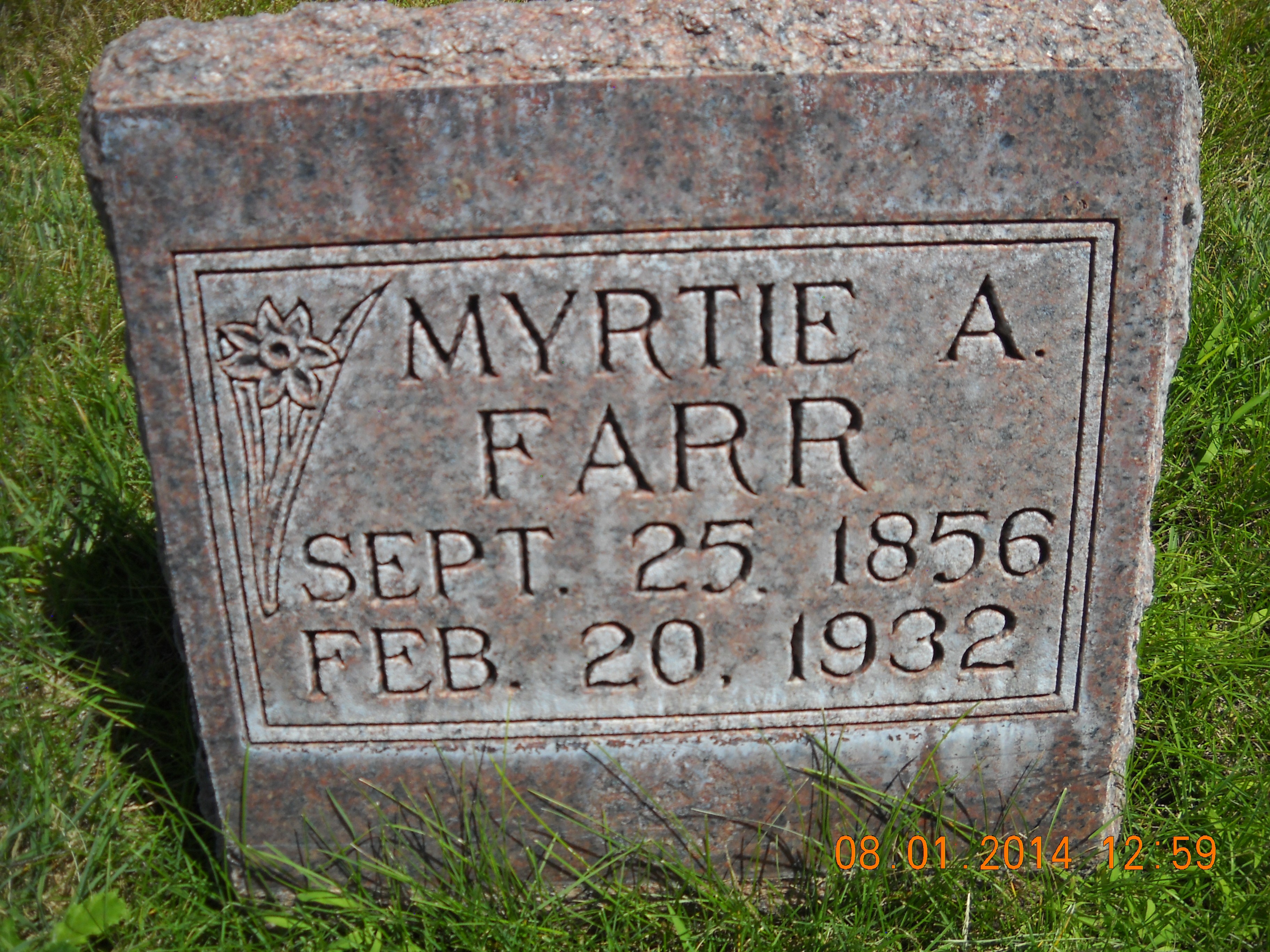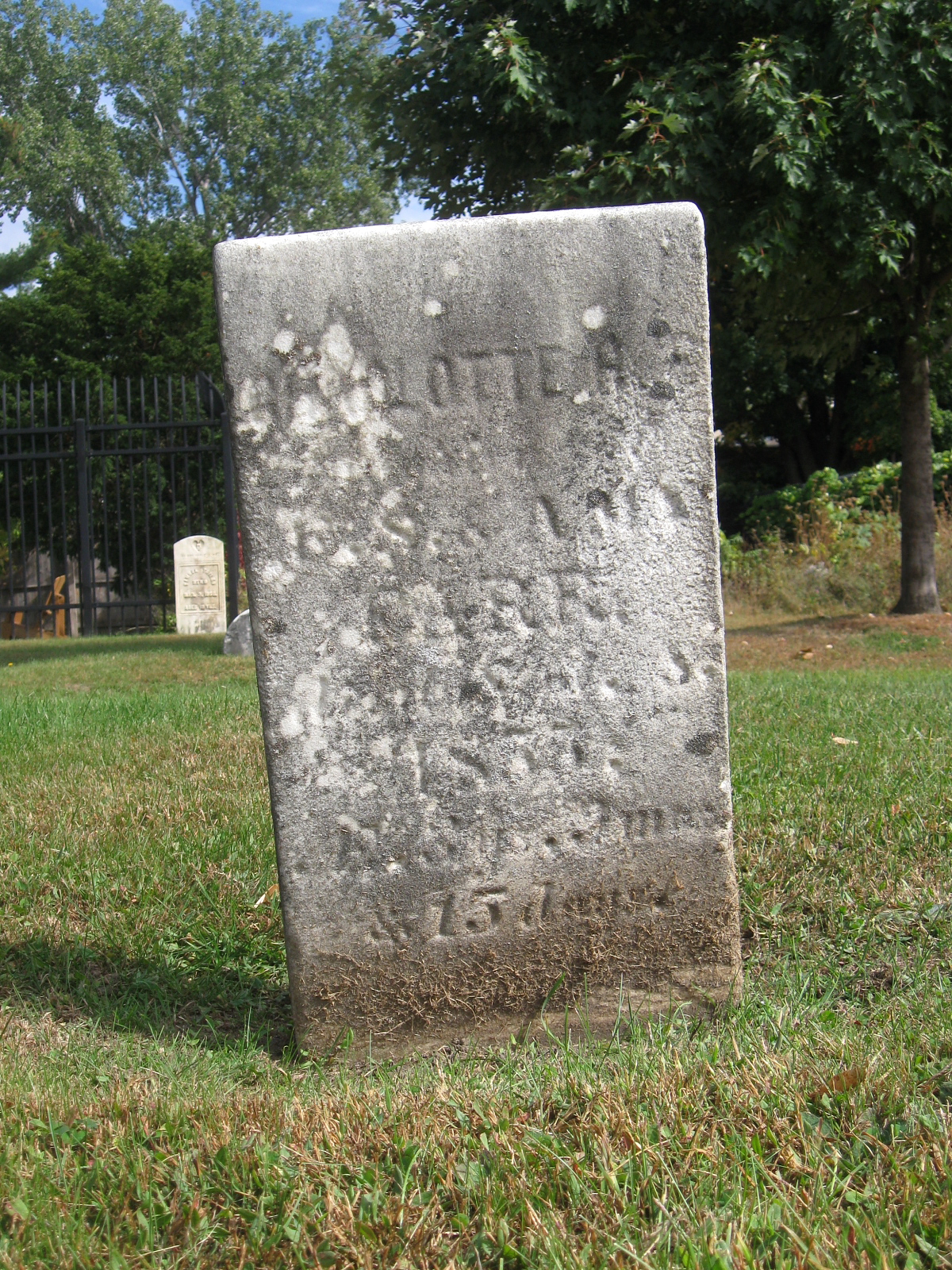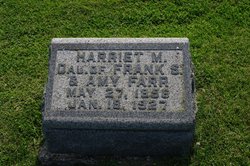 |
Joel FARR [Parents] [scrapbook] 1 was born 2, 3 in 1796 in Vermont, United States. He died 4 on 24 Aug 1854 in Vermont, United States. He was buried 5 in Huntington, Chittenden, Vermont, United States. Joel married 6, 7, 8 Eunice HIGGINS on 6 May 1816 in Huntington, Chittenden, Vermont, United States.
Joel resided 9 in 1850 in Huntington, Chittenden, Vermont, United States.
Joel Farr, b. Vt., 1796, son of Abel & Rhoda (----) Farr. He m. Eunice Higgins (b. Cape Cod, Mass. --, dau. of – of Eastham, Mass). He was a shoemaker by trade, but during the latter part of his life was engaged in tilling the soil. Joel volunteered as a soldier during the War of 1812, but the war closed before he reached the field. —1850 census of Huntington, Vt. lists: Joel Farr (b. Vt. age 54, farmer), Eunice Farr (b. Mass., age 57, wife). Franklin Farr (b. Vt., age 26), Abel Farr (b. Mass., age 75, Rhoda Farr (age 75, b. Vt). —Joel Farr died 26 Aug., 1854 (age 58). He was buried all by himself in the Maplewood Cemetery in Huntington, Vt. His wife survived him and traveled to Henry County Iowa to be with her son, H. H. Farr. She died in Henry County Iowa, 29 Oct., 1871 (age 80). They had a daughter, Eliza, b. Chittenden County, Vt, 9 June, 1817. She m. (as his 3rdwife) in Iowa, 10 June, 1862, Mr. John M. Hanson (b. Deerfield, Mass., 25 June, 1807). Mr. Hanson, had 3 children by his 1st wife, who died in 1839. He had six children of his 2nd wife, who d. in 1852. "He was first President of the Henry County Iowa, Agricultural Society, and chief promoter of its first Fair. He held many town and school offices, and in 1871, was chosen to represent the county in the Iowa State Legislature on the Independent Farmer's ticket. He contracted a severe illness, and died on his farm in Center Township Iowa (adjoining the town of Mt. Pleasant), 3 April, 1887. He left a sorrowful widow and children, and a large circle of friends.
Submitted by Linda Welch
|














